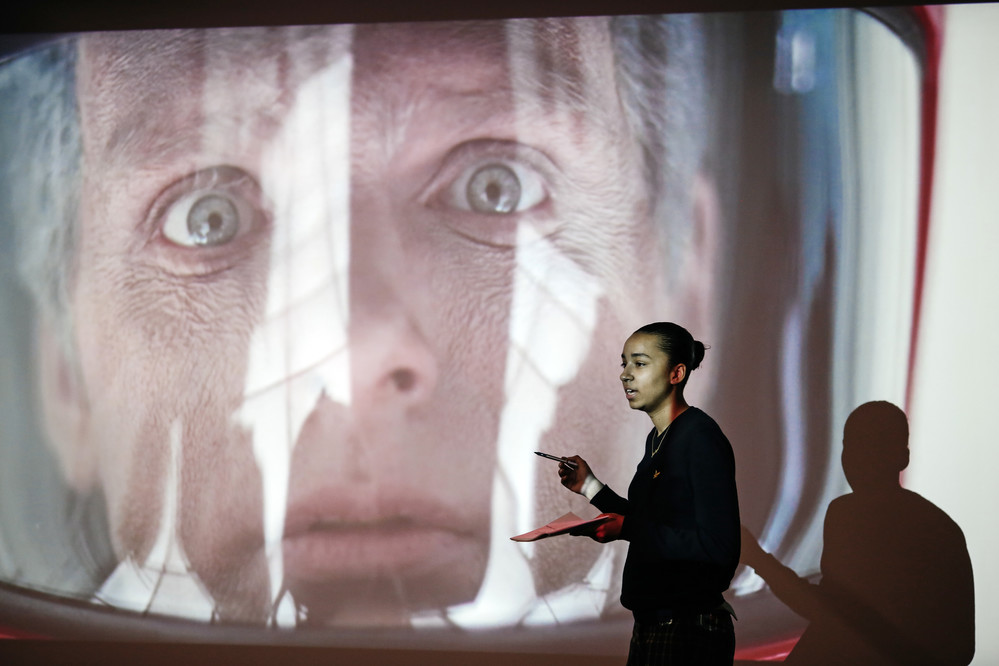Leading creative and cultural figures were brought together by UAL and The Creative Industries Federation for a panel discussion which took place online, 5 August 2020 as part of the UAL Graduate Showcase.
Titled ‘Reimagining the Creative Industries’, it was a timely discussion on how the creative industries can and should be involved in helping the UK emerge stronger from the pandemic. It also reflected upon the reoccurring issue around proving the importance of the arts and creative industries to government and the public, which has already been widely researched and discussed in 2014 through the Warwick Review.
This key virtual event was chaired by UAL Vice-Chancellor Nigel Carrington and welcomed presentations by a number of key industry people as well as directly looking at ways in which UAL could influence the Government’s spending review.
UAL and Creative Industries Federation present: Reimagining the Creative Industries, 5 Aug 2020. Video transcript [PDF, 113KB]
The panel and key questions
The current moment in history combines a crisis in the creative sector brought on by the COVID-19 pandemic and its consequences, with the potential in the creative sector to help the country emerge stronger from the pandemic.
Sir Peter Bazalgette, Executive Chairman, ITV: How can we make the case to government for the role the creative sector can play in national reimagining and renewal?
Chino Odimba, Playwright: How to make the case to the public for the importance of creativity when so many are struggling with their basic livelihoods and with the prospect of further lockdown?
Eliza Easton: Head of Policy Unit, Creative Industries Policies and Evidence Centre, Nesta: How to get a good Research and Development (R&D) settlement, and what does research tell us about how policy-makers should approach the future of the creative sector?
David Bickle: Partner, Hawkins\Brown architects - How to address some of the burning issues around inequality, precarious jobs and diversity within our own sector?
Neil Mendoza: DCMS Commissioner for Cultural Renewal - Closing Remarks
Key quotes
Our historic success comes from our resilience, agility, future-facing qualities, and our ability to engage and inspire people. The government’s £1.57 billion support package in July has been hugely welcomed – but it is by no means a fix. Oxford Economics has projected the financial impact of the pandemic on the creative sector at over 400,000 creative job losses and over £70 billion lost in creative industries revenue.
- Nigel Carrington
Sir Peter Bazalgette’s focus lay on the use of culture and trade as means of Soft Power to create reputation, placing the UK as a leader in the field, as well as using culture as means for diplomacy.
The creative sector has a “USP”: it’s the sector that enriches our national culture and shared values as well as generating income. In the internet age, this is more critical than ever before. We must generate some very specific ideas to create a more diverse sector e.g. more structured opportunities for learning and engagement.
- Sir Peter Bazalgette
Chino Odimba suggested to focus on the “humanness” of creativity, as this underpins how the sector recovers and we should capitalise on the fact that the pandemic taught us that we need human connections.
We are now faced with the unique opportunity to change the creative sector’s own story by moving away from being expendable or elite. For public opinion to be positive, the majority need to feel they’re part of something.
- Chino Odimba
Interested to know more? Have a look at these key policy research briefings from the Creative Industries Policy and Evidence Centre, NESTA.
- During the UK's COVID-19 lockdown: Understanding how our habits of cultural consumption changed
- Graduate motivations and creative subjects
- The importance of a UK wide recovery plan for the creative industries
- Artificial intelligence and the creative industries
Image shows Ella Williams, Film and Screen Studies London College of Communication UAL © Alys Tomlinson


